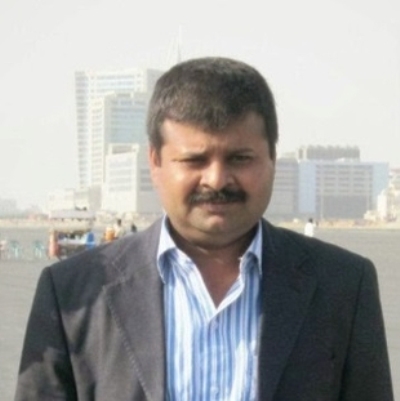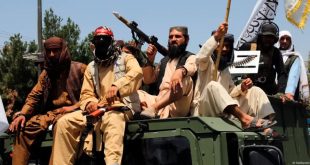By Zulfiqar Shah-In 2013, Jammat-e-Islami Pakistan declared Mohammad Bin Qasim ‘First Pakistani’. Later on in 2013, Pakistan Army Chief General Pervez Kiyani while addressing the army men said that Mohammad Bin Qasim is the ‘First Pakistani’. Apart from the dissents concerning historical and contemporary narratives about Pakistan, it is established fact according to the official record; the name of newly found country was ‘Pakistan’ in 1947. Pakistan was officially named Islamic Republic of Pakistan in 1973. It means Pakistan was not Islamic country or republic on August 14, 1947. This is also validated by the speeches by M. A. Jinnah after creation of Pakistan. If this is very same Pakistan of M. A. Jinnah, then why one needs to choose First Pakistani from among the Arab invaders? Was Jinnah not the First Pakistani? Besides, how a General who leads an Army of existing country can term an invader a hero? Can a general be allowed to claim Alexander the Greek ‘First Pakistani’? Sindh Balochistan, together one country Sindh at that time under Raja Dasrath, gave Alexander a tough fight; and ironically Punjab, having capital at that time between Taxila and Islamabad welcomed Alexander without any fight. If Pakistani armed forces are federal, can they claim invaders of any part in the federation of Pakistan as their hero? Holy Quran says that faith / religion is ones’ personal matter. Why then, a Republic can and should be Islamic? Wasn’t it the reason that Holy Prophet chose word Khalafat (Caliphate) despite Islamic Republic? God himself says in Holy Koran by mentioning word “nation” that waging war to defend the nation is appreciated. However, Holy Quran never suggests military offense; and the wars waged during the period of Holy Prophet were not offensive. These were either defense or defensive offense. Why not, if unavoidable and enviable, with the consent of Sindh and Balochistan, and rest of the provinces and federating nations of Indus lands, Khudaijatul Kubra Allaih Sallam (A. S.), and Hazarat Ali A.S. chronologically first Muslims, be declared First Pakistani? One of Saduzai Pashtun, Sindhi and Baloch Asehaba Akraam should not be declared First Pakistani? A Sindhi woman was Harem in the family of Holy Prophet, why then she should not be declared first Pakistani? Imam Hussain wanted to settle in Sindh of Hindu King. Why Imam Hussain should not be declared first Pakistani? Would it not be ideological security of ‘Islamic Republic’? Pakistani Passport carries word ‘Pakistani’ for the Nationality of the passport holders. Suppose nationality of the people in Pakistan is Pakistani, then, why to claim Muslim nationhood? What about two-nation theory? Is there any formal treatise of Two Nation theory because theories are always expressed in philosophy? Besides, when Islamic Republic of Pakistan’s military wages war against another Islamic Republic’s army, for example Afghanistan or Iran? Both would be raising the slogan ‘Allah-o-Akbar’ (God is great). Whose God would be great? And, if soldiers killed, whose soldiers would be martyr?
If Mohammad Bin Qasim is the first Pakistani, Jinnah is the last.
Sindh and Balochistan do not believe in Two-Nation theory. Besides, in 1971 East Pakistan became Bangladesh on ethnic-national bases. Wasn’t it the great truth of our times? Sindh and Balochistan have expressed themselves by participating Second World War for the freedom of Sindh; in 1946 British Indian provincial elections; in 1948 through Balochistan parliament, and later on until now. After dismemberment of Pakistan in 1971, Sindh and Balochistan, and Khyber Pakhtunkhuwa also were not sought their Will through election for the constitutional assembly? Thus, Sindh and Balochistan ascertain that their being part of State of Pakistan is violation of their will. Sindh and Balochistan, Khyber Pakhtunkhuwa, and Siraiki southern Punjab through their elected political representations, although their participation in Pakistan Armed Forces was negligible, never gave consent, opinion or suggestion for waging war on East Pakistan. Thus, around seventeen Punjabi speaking districts declared 1971 war on East Pakistan and on its people — men, women, and children. Hence, Sindh and Balochistan terms action by the forces of the State on the political dissent and difference on federalism against historical homelands and their people.
Sindh and Balochistan re-ascertain their sovereignty in terms of territory, people, political will, and governance including economy. Government of Sindh and Balochistan, through their Assemblies, Chief Ministers, Cabinet Ministers, political leaders, religious scholars and persons of opinion have time and against protesting and expressing their will against armed forces and services actions against people and the lands. The collective will has been expressed by the legislatures, governments, political and social leadership, and millions of people’s action for taking to the streets concerning broader sovereignty and security of Sindh and Balochistan, regarding issues ranging all fields of statehood of the federating provinces. When armed forces and services actions referred to the Sindh High Court and Balochistan High Court, an attempt of justice was made. Sindh and Balochistan officially, publicly and popularly, politically and socially have been mentioning the discrimination, humiliation, intrusion and non-cooperation by Punjab in terms of economic, social and political acts and actions. Chief Minister and representation of Sindh Government also have formally mentioned the colonization of Sindh by Punjab. Government of Balochistan has time and again been expressing its opinion on Gwadar and other matters and issues. This is nothing but seventy years long federal failure, to which seventy years long popular will has been expressed through all legitimate and recognized means, institutions and forums, and in last one decade reiterated in all forms as mentioned above. Sindh and Balochistan, therefore, gave option to the Islamic Republic of Pakistan to transform into a new statehood, a Union of Sates that falls around the Indus with the popular and constitutionally elected will of the historical lands, for ensuring sovereign autonomy and self rule for the historical nations and lands around the Indus. Let the foundation civilization and urbanization of humankind rooted in Sindh and Balochistan spread across the Indus and beyond, contributes into polity and culture of human interaction in Pakistan, South Asia and across the world.
Shah is a Sindhi refugee journalist, analyst and activist currently staying in New Delhi, India. www.zulfiqarshah.com
 Afghanistan Times
Afghanistan Times




